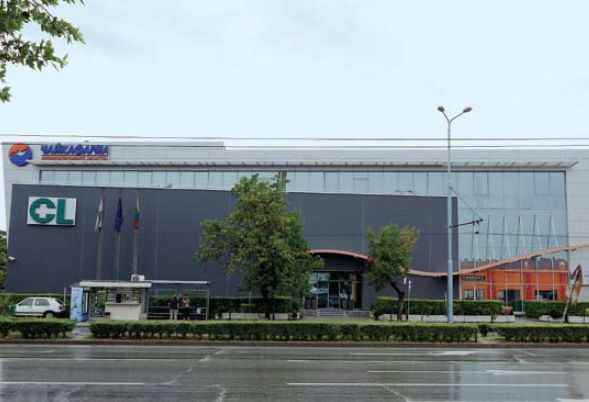-
February 3, 2015
The government approved changes to the National Programme for primary prevention of cervical cancer in the Republic of Bulgaria 2012-2016, which provide for extension of the target group subject to immunization program by including 13 year old girls, informed the press office of the Council of ministers. A two-dose mode of conducting the immunization scheme is adopted, which corresponds to the changes in 2014 in the summary product characteristics of both vaccines used in the prevention of human papillomavirus oncogenic infections.
The new scheme will result in the release of financial resources within the approved budget of the Programme and will provide the parents, who missed the opportunity to immunize their daughters or parents, who changed their minds about the benefits of prophylactic immunization, the possibility of free immunization
The necessary resources to implement the Programme are at the expense of the approved budget of the Ministry of Health. The mechanism of financing the cost of vaccines and their administration by the National Health Insurance Fund through transfer of funds from the Ministry of Health is preserved.
With the adoption of the National Programme for primary prevention of cervical cancer in the Republic of Bulgaria 2012-2016, the country implement the recommendations of WHO to include vaccination against HPV in national strategies for the control of cervical cancer and became the 24th state in Europe to provide public funds for immunization against HPV, while retaining the recommendatory nature of the prophylactic immunization. The immunization coverage achieved with complete immunization schedule of three doses of prophylactic vaccine in relation to the number of girls targeted given in percentages is 24% for 2013 and 17.7% in the nine months of 2014. -
Last week, the cabinet approved and will put to a vote in the National Assembly the proposed by the Minister of Health Petar Moskov changes in the Health Insurance Act related to hospitals, pay for medicines, collection of health insurance and others. The goals of the reform are twofold – to increase revenue in the system and make more efficient spending of the funds collected. Here are some of the proposed changes:
Measures against people without health insurance
The state gives a period of only six months to people without health insurance to pay their installments due for three years back to reenter the system. When this period expires, for the recovery of health insurance rights in practice the due installments will be from the commencement of the compulsory health insurance (i.e. from 2000), and not as per current legal regulations – for only three years.
The Minister of Health Petar Moskov explained that efforts by the NRA and the MF to collect health insurance installments are giving results.
The changes provide that the relevant health institutions after examination of an uninsured are obliged within three days to report to the NRA. Moscow explained that the state should know at any time how many are the uninsured.
The measure is put forward as part of proposals to increase the health insurance revenue and increase the revenue of the budget of the NHIF.
More stringent control over the quality of hospital services
The systematic violation of the requirements for quality of medical care will serve as a ground for termination of the funding from the National Health Insurance Fund (NHIF), proposes also the cabinet. According to the requested changes, the contract with the medical care provided can be terminated also when a systematic patients’ dissatisfaction is established. The NHIF is obliged to carry out a study of patient satisfaction with the health services covered.
Two packages of health services will be covered by the NHIF
The package of medical services covered by the Health insurance fund is divided into primary and secondary. The specific medical activities to be included in the packages will be regulated by the Minister of Health in an Ordinance.
The proposed changes reinstate the contractual basis in defining the methodologies for valuation and payment of medical activities, the volumes and prices of medical services, and arrangements for monitoring of the implementation of the contracts between the NHIF and the health care providers, as well as penalties for non-compliance. These relations will be negotiated in the National Framework Agreement (NFA) between NHIF and Bulgarian Medical and Bulgarian Dental Associations. This will enhance the participation of the professional organizations in determining the quality criteria for carrying out medical activities and in the treatment results monitoring.
The Arbitration Committees will be reinstated and they will review the opinions of the persons (health care providers) checked in case of established violation of the NFA.
The state will pay more for the health insured by it subjects
The proposed changes provide for gradual increase of the insurance income by 5% a year starting from 2016, on which the state will pay the health insurance installments to reach the minimum insurance income for self-employed persons. Currently the state pays only half of it, which creates conditions for underfunding of the system and accumulates deficit and affects the quality of health care. -

The arterial hypertension (AH) is a widespread disease, which often occurs in combination with other pathological conditions, worsening prognosis in a patient with metabolic syndrome or type 2 diabetes (DT2), and damage to the target organs, such as microalbuminuria or renal failure (RF).
The combination of arterial hypertension and microalbuminuria or renal puts the patient in the high risk category for the occurrence of adverse cardiovascular events, and accordingly requires from the doctor a more aggressive approach for treatment and for combating the risk factors.
The recommended treatment of patients with hypertension and renal impairment includes blockers of the renin angiotensin aldosterone system (RAAS), angiotensin converting enzyme inhibitors (ACEi) or ARB, because these drug classes prevent onset and/or slow the progression of nephropathy. The side effect profile of RAAS blockers, which determines the tolerability and the compliance with the therapy, provides advantage to angiotensin receptor blockers (ARB).
For treatment of arterial hypertension eight ARBs are available: azilsartan, candesartan, eprosartan, irbesartan, losartan, olmesartan, telmisartan и valsartan. They differ considerably from one another in terms of their pharmacokinetic and pharmacodynamic properties.
Telmisartan has the longest half-life (approximately 24 hours) and the highest affinity to the type I receptors of angiotensin (AT) II. Furthermore, its lipophilicity is higher compared to the other ARB, which implies a larger volume of distribution and a better penetration into tissues.
An additional effect of telmisartan is its function as a partial agonist of the peroxisome proliferator activated receptor gamma, leading to an advantage of the drug in patients with insulin resistance and impaired glucose regulation (DT2) in association with hypertension.
The specified characteristics of telmisartan are expressed in several clinical advantages (e.g., long-term control of arterial insufficiency – BP and cardiovascular protection), which makes the medication particularly suitable for the treatment of hypertensive patients with DT2.
VIVALDI (VALsartan in hypertensive type II Diabetic patients with overt nephropathy) provides the same degree of Nephroprotection as telmisartan and valsartan in diabetic patients with overt nephropathy, while in the same patient category the ability of telmisartan to reduce proteinuria is higher than that of losartan, despite the similar reduction in the values of BP with both medications.
Telmisartan has proved its efficiency in the absence of hypertension. The study ONTARGET (ONgoing Telmisartan Alone and in combination with Ramipril Global Endpoint Trial) covers 25 620 patients with vascular disease or DT2 and evidence of organ damage that were randomized for treatment with telmisartan, ramipril, or a combination of both medications.
ONTARGET shows that both RAAS blockers are equally effective in influencing the primary endpoint (the combination of cardiovascular death, myocardial infarction, stroke and hospitalization for heart failure), but telmisartan is better tolerated.
Based on the results of ONTARGET, telmisartan is the only ARB with an indication for the prevention of cardiovascular disease regardless of the values of BP, including in patients with DT2 with renal impairment.
Tchaikapharma High Quality Medicines Inc. produces telmisartan under the trade Telsart.
Telsart is in the NHIF list with the following code and price:
Telsart 80 mg x 28 tabl. – CG201
Free sale price – BGN 5.64
Reimbursement – BGN 2.64
Additional payment by the patient – BGN 3.00
Telsart has the lowest price compared to all other competitors on the market – the additional payment under the NHIF is only BGN 3. For other telmisartans the patient has to pay between BGN5.15 and BGN 8.25. Estimated on the number of tablets Telsart again has the lowest price – BGN 0.11 per tablet.
For more information see here:
Telsart -
January 20, 2015
The rating system for assessing of the employers is part of a joint project of the CITUB and the Bulgarian Industrial Association.
Tchaikapharma High Quality medicines Inc. is rated second in one of the most competitive and rapidly growing sectors of the economy – production of medicines. The selection of the companies is based on key economic indicators of the large and medium-sized Bulgarian enterprises – investment and technical conditions, finance, human capital and work climate, corporate social responsibility.
The ranking aims to create an objective public rating and to present to the public, on an annual basis, the leading businesses – those which care for their own development and for their human capital. At the same time the investors and the partners will receive information on the annual turnover, profit and introduction of innovations.
The interview with the Executive Director of the company Mr. Biser Georgiev you can find here.
-
January 13, 2015
Decades long drought in antibiotic discovery could be over after the announcement of the American scientists which can change the future of these drugs.
The researchers from the Northeastern University in Boston have developed a method for growing bacteria which yielded 25 new antibiotic, and one of them, teixobactin, is “very promising” to combat the so-called superinfections, resistant to existing antibiotics.
The study, in the journal Nature, has been described as a “game-changer” and experts, quoted by the BBC, believe this to be just a small portion of the potential of the new method.
They turned to the source of nearly all antibiotics – soil. Because 99% of the bacteria for antibiotics cannot be grown in the laboratory, they invented a method this to be done in soil in controlled conditions. The initial data suggests that the teixobactin kills a broad spectrum of microbes resistant to antibiotics by blocking their ability to build cell walls, and thus to develop protection.
Trials on mice show that Staphylococcus aureus and Streptococcus pneumoniae infections, causing life-threatening infections of the blood and lungs, are quickly liquidated. There is also effect against the enterococci, which can cause infections of the heart, prostate, urinary tract and the abdominal cavity.
The vast majority of the discoveries of antibiotic were made in the 50s and 60s and nothing developed after 1987 has reached the doctors. At the same time the microbes become more and more resistant and we have a serious problem with tuberculosis, which is not affected by any of the known means.
Sir Alexander Fleming, who discovered penicillin, warned of the dangers of resistance back in his Nobel prize speech in 1945. Then the massive prescription of antibiotics by the doctors contributed to the problem.
The World Health Organization warned last year that the world probably enters the “Age after antibiotics”. British experts indicated in December that in the next 20 years, more people will die from infections after surgery, and the infections from antibiotic-resistant germs and bacteria will cost the world economy up to USD 100 billion in 2050.



